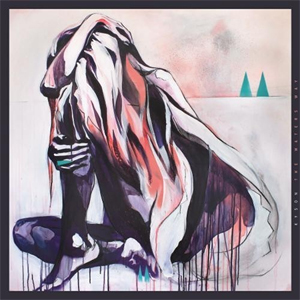Kyson The Water’s Way
Though the Friends of Friends label hasn’t exactly followed one aesthetic philosophy while building its […]

Though the Friends of Friends label hasn’t exactly followed one aesthetic philosophy while building its roster, the new presence of Berlin-by-way-of-Australia producer Kyson in the imprint’s stable makes a lot of sense. On the artist’s debut full-length, Kyson crafts productions that appear a few steps farther along the path from labelmate Shlohmo’s first releases, making use of the textural percussion and hazy melodies which marked the SoCal producer’s style early on. But Kyson has evolved his sound beyond that base, absorbing more worldly elements and adding unabashed layers of his own voice into the arsenal. Where Shlohmo once draped himself in moody disillusionment, Kyson’s tracks have a more uplifting, self-reflective quality. However, while it’s clear that Kyson is a promising talent over the course of his 10-track debut album, his is a promise that sometimes goes unfulfilled on The Water’s Way.
To be fair, Kyson is fighting a bit of an uphill battle from the start. The world of blissful beats is one that has become overpopulated in recent years; as such, finding pockets of innovation in this corner of the electronic spectrum is becoming an increasingly difficult task. Still, to his credit, Kyson does not sound like he is someone who simply wants to cover the same ground as his predecessors or co-opt any particular style. His attempts may not always be resounding successes, but glimpses of a unique production voice do shine through. The Water’s Way begins with one of its better efforts, weaving an almost overwhelming assemblage of heavenly tones and Eastern-touched strings around a Mount Kimbie-indebted halftime skip, while—a bit down the line—the rushing, triplet-swung “Ran Away” sounds like a refortified Baths with its reverb-washed, high-register vocals and swirling pads. Though these two examples bear comparison to somewhat like-minded artists, this is one of the hazards of making one’s name in a crowded field—one’s resemblance to those who came before is hard to go unnoticed. Even the ambient-leaning, interlude-like “Moments in the Background” shares some solid connections to the work of Dntel (circa his defining Life Is Full of Possibilities LP), which is certainly not a bad comparison to elicit, but it’s one that is hard to ignore nonetheless.
The Water’s Way‘s only major downfalls come when Kyson elects to make his own vocals the focus of his productions. While there are some instances of the young producer using his voice tastefully, tracks like “Missing Things” and “She Said to Me Quietly” demonstrate the opposite. Kyson can certainly sing, but that doesn’t mean he has to, and on these songs, the addition of outright lyrical content throws off the already teetering balance his hybrid productions are attempting to strike. Considering the beds on top of which they are presented—in the case of “Missing Things,” a heavy-handed orgy of side-chained chords, and on “She Said to Me Quietly,” a bizarrely assembled ensemble of tribal loops, shuffling drums, and continuously ascending synths—Kyson’s passionate vocals push the tracks too far into overdramatic territory. Putting together an album’s worth of blissful electronic hybrids is no easy task, as it’s easy to wind up with a collection of downtempo, adult-contemporary-ish electronic-pop tunes that serious listeners will avoid. Kyson is still learning where the line is, especially on songs like “How Long,” whose live drums, falsetto vocals, and predictable rush of washing synths just doesn’t quite work.
Still, there is definitely a light at the end of Kyson’s tunnel; the album’s closing effort, “Shadow’s Cross,” makes the best case for the artist moving forward. The song is catchy, but well-balanced, as its simple melodies never take off too far and its arrangement is given plenty of room to breathe. It’s a formula that’s unfortunately lacking on the rest of the record. Furthermore, the tune even finds Kyson incorporating his own voice in manner that seems fitting, offering small stanzas that serve to make the man’s voice sound as much like a musical instrument as it does a vessel for his ambiguous lyrics. “Shadow’s Cross” is a promising note to end on, and one that ultimately signals that, though The Water’s Way may not be the subject of heaps of praise, giving up on Kyson at this point would certainly be a mistake.

